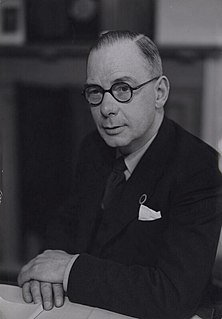A Quote by Saint Augustine
The Sacraments are the salvation of those who use them rightly, and the damnation of those who misuse them.
Related Quotes
Those who obtain riches by labor, care, and watching, know their value. Those who impart them to sustain and extend knowledge, virtue, and religion, know their use. Those who lose them by accident or fraud know their vanity. And those who experience the difficulties and dangers of preserving them know their perplexities.
Provided they live a worthy life, both those who choose to dwell in the midst of noise and hubbub and those who dwell in monasteries, mountains and caves can achieve salvation. Solely because of their faith in Him God bestows great blessings on them. Hence those who because of their laziness have failed to attain salvation will have no excuse to offer on the day of judgment. For He who promised to grant us salvation simply on account of our faith in Him is not a liar.
No intellect is needed to see those figures who wait beyond the void of death - every child is aware of them, blazing with glories dark or bright, wrapped in authority older than the universe. They are the stuff of our earliest dreams, as of our dying visions. Rightly we feel our lives guided by them, and rightly too we feel how little we matter to them, the builders of the unimaginable, the fighters of wars beyond the totality of existence.
I consider as lovers of books not those who keep their books hidden in their store-chests and never handle them, but those who, by nightly as well as daily use thumb them, batter them, wear them out, who fill out all the margins with annotations of many kinds, and who prefer the marks of a fault they have erased to a neat copy full of faults.
There are some arts which to those that possess them are painful, but to those that use them are helpful, a common good to laymen, but to those that practise them grievous. Of such arts there is one which the Greeks call medicine. For the medical man sees terrible sights, touches unpleasant things, and the misfortunes of others bring a harvest of sorrows that are peculiarly his; but the sick by means of the art rid themselves of the worst of evils, disease, suffering, pain and death.
In the future, the great division will be between those who have trained themselves to handle these complexities and those who are overwhelmed by them -- those who can acquire skills and discipline their minds and those who are irrevocably distracted by all the media around them and can enver focus enough to learn.
What a learned idea! Jesus, our elder brother, was begotten in the flesh by the same character that was in the garden of Eden, and who is our Father in Heaven. Now, let all who may hear these doctrines, pause before they make light of them, or treat them with indifference, for they will prove their salvation or damnation
As to those in whom the will of God is not inwardly accomplished,-because there is no inward life in them, for they are altogether outward,-upon them the will of God is wrought as alone it can be; appearing at first sight bitter and ungracious, though in reality merciful and loving in the highest degree. To those who do not love God, all things must work together immediately for pain and torment, until, by means of the tribulation, they are led to salvation at last.










































